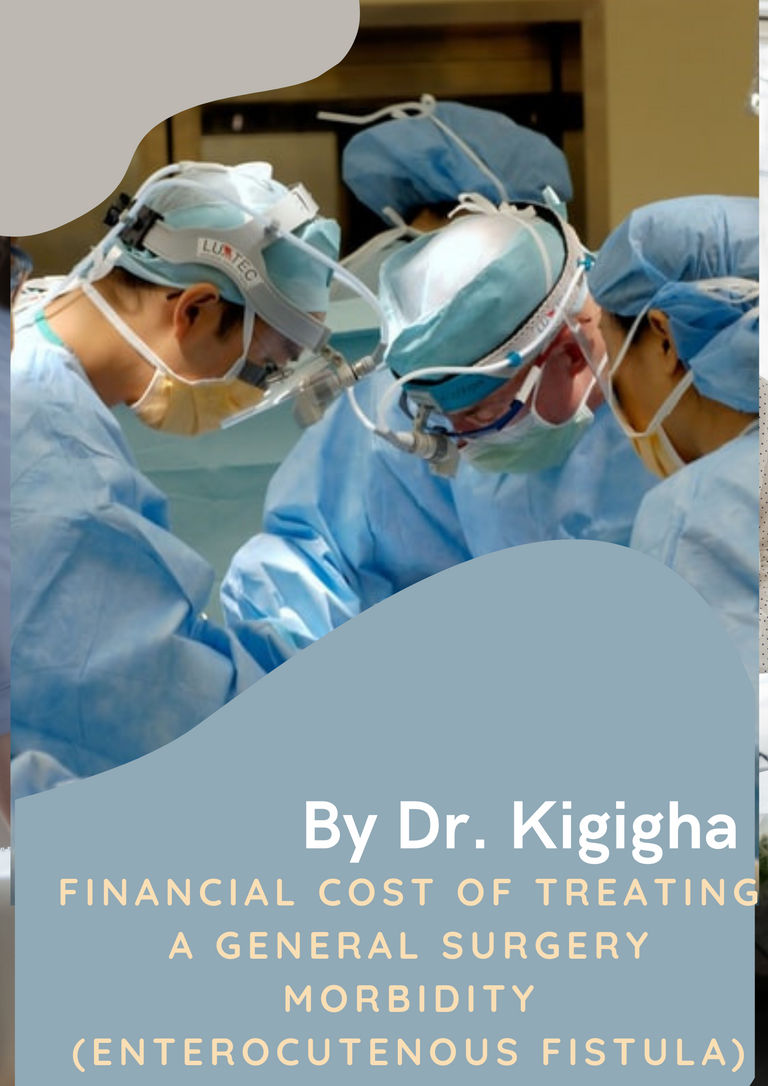Financial Cost of treating a General Surgery Morbidity (Enterocutenous Fistula)

I was going to write a Stemsocial post highlighting all the major points of the morbidity case we were to present yesterday.... as it turns out the information is classified.
I can't believe they've let me in on classified information. The worse part is I didn't even know it was classified but I got to confirm from my senior (registrar) and he let me know that the information put together in the wrong hands could indite the hospital and lead to some mad financial cost.
It's not that the hospital did not do all it could to prevent the morbidity, but some things written on paper do not express the exact conditions that lead to the morbidity.
Like why wasn't this drug given on the first day after surgery? It may look like the doctors did not request for it even though it was the best option for the patient...but it's probably because it was not available...in the country or the state or the patient could not afford it.
So today...for all those who are looking for points to win an argument about taking care of your body...here is the financial cost of managing a morbidity.
The morbidity in question today is an Enterocutenous Fistula (ECF)
An Enterocutenous Fistula in surgery implies that the enteric system...The Gut and the cutaneous system are communicating abnormally, through an opening known as a fistula.
It is usually a result of prior surgeries that have been done and had to involve the abdomen.
In Countries where modern medicine is practised this is not much of an issue because endoscopic surgeries can minimize the risk of this complication. But this has a cost of its own...
An endoscopic surgery should cost somewhere between $1,250 to $4,800 in America. In Nigeria, it cost between $80 to $200 the difference being (in my opinion) in the standard of care given and the availability of modern technology.
So, what did it cost this patient?
I have a list of the drugs.
I will be excluding the cost of paying the staff in the hospital as that is just added to the general cost for admitting the patient and is handled by the government.
Let's just say the lowest doctors (House officers) earn about **$11 per day **and factor that into whatever maths we are doing.
In hospitals in Lagos a Laparotomy can cost between $110 to $1,200 depending on the procedure it is for.
Besides all the documentation work also associated with admitting a patient without insurance which is probably about $2-3, the patient will require ancillary investigations, drugs, and fluid that will be needed daily.
Following the order for when the patient is admitted:
Blood investigations in Nigeria cost about $16 for the particular ones required (Electrolyte, Urea, and Creatinine plus Full blood count)
Ringers Lactate 500ml will be needed 4 hourly that's about 6 bottles that cost about $2+ in total.
The antibiotics are intravenous (IV) and IV drugs tend to be more expensive.
Among the drugs are Ceftriaxone (a broad-spectrum antibiotic), Metronidazole (a drug for anaerobic organisms), Omeprazole (To help with stress ulcers), and Astymin (To stimulate healthy blood cell growth).
Ceftriaxone is about $3, Metronidazole is about $2, Omeprazole is close to $3 and Astymin is $10.
Given that this condition's conservative management will require these drugs and have the patient in admission for over a week. That puts management at least $15 per day. For an average of a week... So that's **$105 for a week **of stay.
For surgical management, more expenses come from the Surgery itself. The surgery cost as much as $110. and will still require fluid and antibiotics cover.
Just in case you were trying to prove a point to your friend about why you should take care of your body and health is wealth...Here you go.
Have a nice day and remember to stay healthy for yourself and for others.

Posted Using LeoFinance Beta